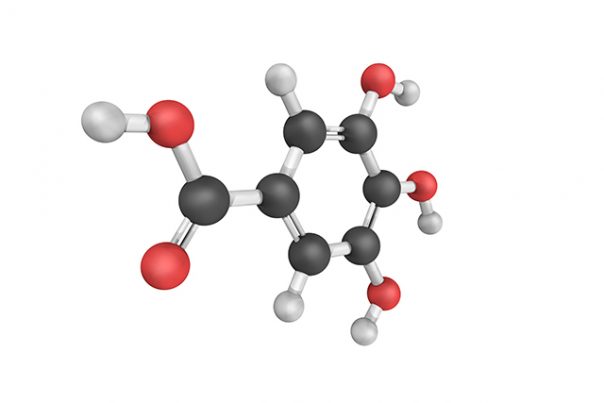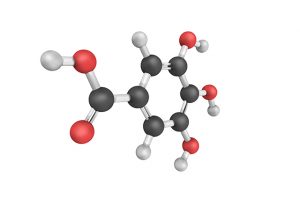
Gallic acid sources, health risks
Tuesday, October 24, 2017 by Frances Bloomfield
http://www.naturalpedia.com/gallic-acid-sources-health-risks.html

Gallic acid is an organic acid that can occur by itself or as part of hydrolyzable tannins, which are types of tannins that yield this acid upon heating with hydrochloric acids. Its name is a reference to oak galls: abnormal swellings of plant tissue historically used in the preparation of tannic acid. Gallic acid can be obtained from a variety of plant-based sources, such as witch hazel, blueberries, watercress, flaxseed, and tea.
Foods known to be rich in gallic acid, like blueberries and witch hazel, have been used as natural remedies by all kinds of cultures. For example, Native Americans made aromatic teas from blueberries and gave these to women in labor as relaxants. Nowadays, gallic acid is largely known for being an antioxidant with potent medicinal properties such as that of an antifungal and antiviral agent.

Harmful effects that can be caused by gallic acid
Although a health-promoting substance overall, gallic acid has been shown to interact with medications that control blood pressure, as well as increase the risk of heart problems in animal studies. Individuals who are either on medication for high blood pressure or have heart problems should consult medical professionals before taking gallic acid-containing supplements.
Persons involved in the handling of commercial gallic acid should be careful around it as it can irritate the skin and eyes.
Body systems harmed by gallic acid
Because gallic acid can interfere with hypertension medication and aggravate heart problems, it can be considered harmful to the cardiovascular system.
Its irritating effect on the skin and eyes means that it shouldn’t be exposed to these organs as well.
Where to learn more
Summary
Gallic acid is an organic acid that is overall a health-promoting substance. However, it’s been known to negatively impact people who have heart problems and those who are hypertensive medicine. Pure gallic acid can irritate the eyes and skin too.
Sources include:
Tagged Under: Tags: Gallic acid





